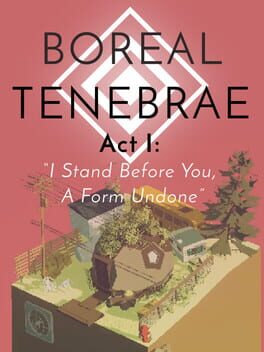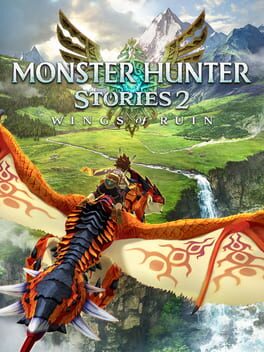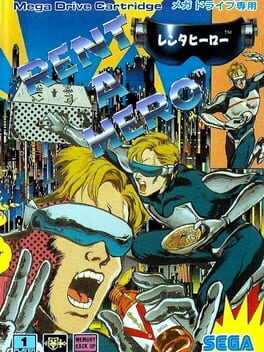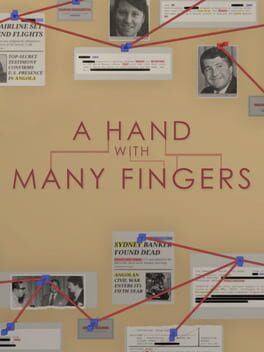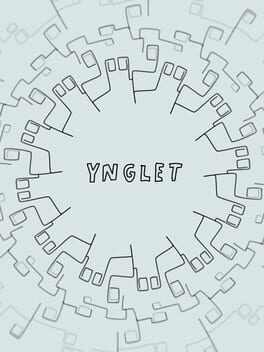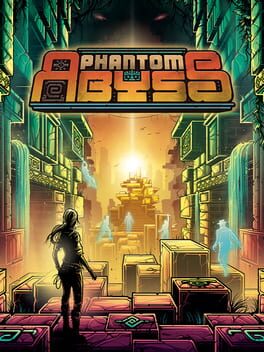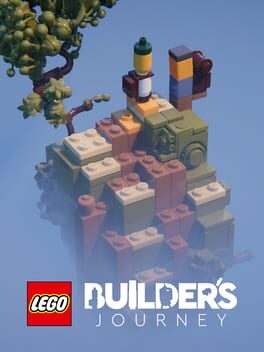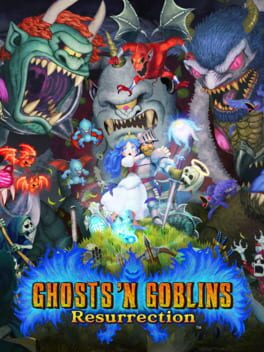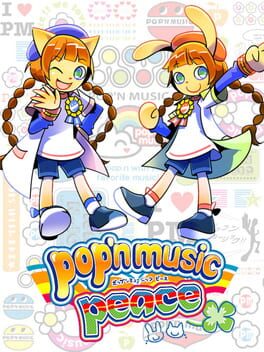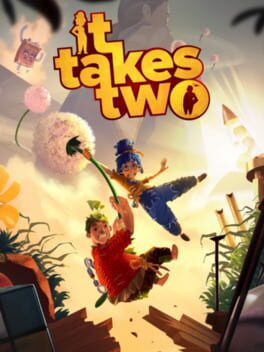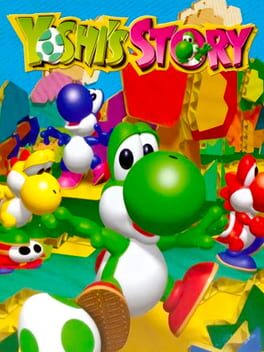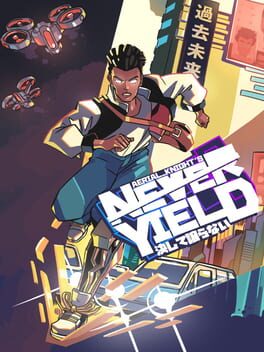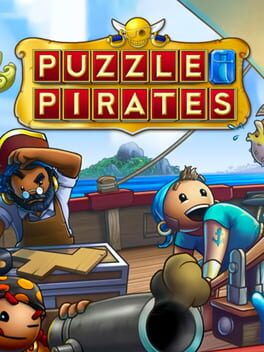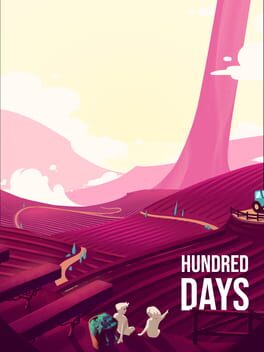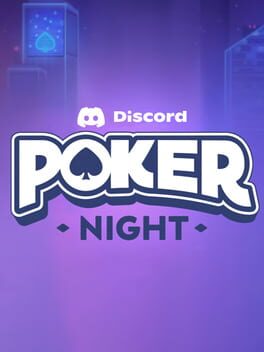BeachEpisode
When I accidentally glitched through a wall and found the narrator I knew this was special.
Incredible vibes, confident presentation. A dead-end town playing idly with its lighter as a sickness slowly engulfs it. The calm before the storm, before the death throes kick in. Systems of power play a big role in every story in Boreal Tenebrae, tangibly through threats of violence and death but also intangibly through poverty, desperation and exhaustion. The boss at the local factory spends his time crushing unions even as he plans to close down and move elsewhere. The mayor talks a big game about unity while packing his bags to leave in the middle of the night. All the while the broken cast characters fighting against the oncoming tide of malicious magical realism with whatever hasn't been stripped away from them.
Act 1 is astoundingly cheap on Steam and Itch right now, and it's also a part of the BLM Bundle if you've got that.
Incredible vibes, confident presentation. A dead-end town playing idly with its lighter as a sickness slowly engulfs it. The calm before the storm, before the death throes kick in. Systems of power play a big role in every story in Boreal Tenebrae, tangibly through threats of violence and death but also intangibly through poverty, desperation and exhaustion. The boss at the local factory spends his time crushing unions even as he plans to close down and move elsewhere. The mayor talks a big game about unity while packing his bags to leave in the middle of the night. All the while the broken cast characters fighting against the oncoming tide of malicious magical realism with whatever hasn't been stripped away from them.
Act 1 is astoundingly cheap on Steam and Itch right now, and it's also a part of the BLM Bundle if you've got that.
1991
A premise that is leaps and bounds more fun than the game itself. Credits to the fan translation for seeming to excavate a little flavour out of this barren wasteland of fetch-quests, backtracking and Street Fighter 1 grade combat.
Speakin of fan translations though, I stumbled upon an ongoing project for the (much more interesting looking) Dreamcast remake that seems to be going along nicely. Keeping my eyes on this!!!! The Rent-A-Hero formula is inches away from winning me over.
https://www.dreamcast-talk.com/forum/viewtopic.php?style=20&f=52&t=14032
Speakin of fan translations though, I stumbled upon an ongoing project for the (much more interesting looking) Dreamcast remake that seems to be going along nicely. Keeping my eyes on this!!!! The Rent-A-Hero formula is inches away from winning me over.
https://www.dreamcast-talk.com/forum/viewtopic.php?style=20&f=52&t=14032
THIS REVIEW HAS BEEN
MARKED FOR DISPOSAL
OS 210/64
OS 504/6
A Hand With Many Fingers is a short and humble corkboard sleuthing game that posts the player into an archive of boxes, paper slips, and a whiff of conspiracy.
I don't have much I'd like to split hairs over about mechanical specifics; the game is relatively thin on substance, as well as in the scope of the overall investigation. The ending is also rather abrupt, which is a little disappointing! Also… shocked to learn that there was a kernel of truth to much of the names and events depicted?? Never knew!! Genuinely wish the game went further into exploring the atrocious under-the-table dealings of the CIA, and I’d def hold it against AHwMF for only giving us the top layer. O well, I've always desperately wanted a sleuthing game that granted me the power to Pepe Silvia across a few corkboards, linking articles and photos with a hieroglyphic cobweb of red twine - and this is the closest I’ve found yet!
I’d most like to compliment the game for its stellar employment of oppressive atmosphere, how well it builds a sense of paranoia without cheap tricks. As my corkboard grew more complex, my search for the truth turned almost frantic and conspiratorial. Milling over a filing cabinet I was sure to find the information I needed in, and turning up blank. “I know the man I’m looking for was here, in this year… right? Who was he with? Why was he here, anyway?”. The phone rings, and when I pick up, nobody answers. Did I just see someone looking at me from the building across from me? Has that car just opposite the office window always been there? The looping classical music sample on the radio becomes annoying, so I turn it off, only to realise that the sheer quiet of the archive is host to a palpable hostility. Come to the end, I was a jumpy mess, skipping heartbeats at subtle audio cues like bugs skittering and lights flickering. I kind of loved that, and frankly genius that it managed to wrangle these feelings out of me where the gameplay loop is essentially just admin work!! The untapped power of beige, babye.
MARKED FOR DISPOSAL
OS 210/64
OS 504/6
A Hand With Many Fingers is a short and humble corkboard sleuthing game that posts the player into an archive of boxes, paper slips, and a whiff of conspiracy.
I don't have much I'd like to split hairs over about mechanical specifics; the game is relatively thin on substance, as well as in the scope of the overall investigation. The ending is also rather abrupt, which is a little disappointing! Also… shocked to learn that there was a kernel of truth to much of the names and events depicted?? Never knew!! Genuinely wish the game went further into exploring the atrocious under-the-table dealings of the CIA, and I’d def hold it against AHwMF for only giving us the top layer. O well, I've always desperately wanted a sleuthing game that granted me the power to Pepe Silvia across a few corkboards, linking articles and photos with a hieroglyphic cobweb of red twine - and this is the closest I’ve found yet!
I’d most like to compliment the game for its stellar employment of oppressive atmosphere, how well it builds a sense of paranoia without cheap tricks. As my corkboard grew more complex, my search for the truth turned almost frantic and conspiratorial. Milling over a filing cabinet I was sure to find the information I needed in, and turning up blank. “I know the man I’m looking for was here, in this year… right? Who was he with? Why was he here, anyway?”. The phone rings, and when I pick up, nobody answers. Did I just see someone looking at me from the building across from me? Has that car just opposite the office window always been there? The looping classical music sample on the radio becomes annoying, so I turn it off, only to realise that the sheer quiet of the archive is host to a palpable hostility. Come to the end, I was a jumpy mess, skipping heartbeats at subtle audio cues like bugs skittering and lights flickering. I kind of loved that, and frankly genius that it managed to wrangle these feelings out of me where the gameplay loop is essentially just admin work!! The untapped power of beige, babye.
2021
Ynglet is the direct alchemical mix of two very personal and formative games for me as a kid, namely fl0w and Pixeljunk Eden, so I can't help but feel a little seen. Gorgeous frictionless micro-botany aesthetic, plinky ost and tranquil floaty minimal controls that disguise a surprising amount of depth and challenge, of which the game is excited to explore at a consistent curve throughout its short 80-minute lifetime.
2024
A very short puzzle game with a quaint little story. It's cute! My biggest take away from Builder's Journey is complete and utter amazement at how stunningly rendered these Lego bricks are. Like looking at an actual, physical diorama - the bricks that compose every stage have their own imperfections and reflective qualities that make the game look completely Real, made even better when stages animate with brick-style liquid physics. Maybe the first actual case I've seen where Raytracing doesn't look like complete dog shit.
Honestly one of the most pleasant surprises of 2021 so far. I'll admit to being far from charitable when this was first announced, entirely because its artstyle just did not hit my flavour palette right. However, after immersing myself in the game for a while, the pin-puppet and painterly style grew on me immensely, and it all culminates with its wonderful storybook presentation. I particularly enjoyed how even the levels themselves were thoroughly animated, using the tweening animation style to warp unrecognisably at points. Reminded me a lot of Rayman Legends levels.
This is the first Ghosts 'n Goblins game I've ever played, and I'll never pretend to be the biggest fan of masocore style gameplay or anything. But, Resurrection feels so tightly designed I was happy to put up with its cheeky bullshit and finally complete it on Legend difficulty. One thing I was particularly taken aback by was how much depth the game could wrangle out of relatively simple player controls - four directions, an attack button and a single jump with a fixed arc. While the level design is relatively cruel with its enemy placements and platforming, it never feels like I needed anything else. With the chests giving sequentially better rewards and gold armour that powers up your current weapon, every moment acts as a risk/reward assessment that could be the difference between life or death, and it is engaging to wonderfully stressful degrees right until the very end. Memorisation is king, so once I learned that every single hazard, enemy or boss in the game has quirks I could read and exploit, it all felt amazing. Music slaps too.
It does have some things that drag the experience down for me, though. For example, I'm not a fan of how weapon pickups persist through death - meaning that you could have a favourite weapon and lose it semi-permanently should you accidentally pick up something else. This problem is kind of compounded by the fact that the Knife is the best in the game by a shocking margin. Get knocked into a useless piece of shit like the Ball or something, and you're stuck with that until you luck out and get the Knife back again.
Completely unconvinced by the skill tree system in this game too. Levels will have a handful of Whisps hidden throughout; they generally trigger when you perform a certain action and remain permanently obtained even should you die after getting one. Some of which I swear are placed, so you HAVE to jump into a guaranteed death to obtain, and often quite far away from the last checkpoint. I found that this is the game giving the OK sign to suicide runs, which is imo a fuckin stupid plethora of unnecessary deaths for an already hard as nails game. It's a little annoying that there are a few genuinely game-changing good abilities you can unlock through obtaining them, like weapon slots and spell switching. I wish these abilities were just present in the game without such an extraneous system gatekeeping them.
I heard a review for this game mention that Super Ghosts n Goblins has the golden armour unlock unique skills for your chosen weapon, which sounds great!!
Should also note that the game also has a bunch of difficulty options and you can set them according to your comfort level.
This is the first Ghosts 'n Goblins game I've ever played, and I'll never pretend to be the biggest fan of masocore style gameplay or anything. But, Resurrection feels so tightly designed I was happy to put up with its cheeky bullshit and finally complete it on Legend difficulty. One thing I was particularly taken aback by was how much depth the game could wrangle out of relatively simple player controls - four directions, an attack button and a single jump with a fixed arc. While the level design is relatively cruel with its enemy placements and platforming, it never feels like I needed anything else. With the chests giving sequentially better rewards and gold armour that powers up your current weapon, every moment acts as a risk/reward assessment that could be the difference between life or death, and it is engaging to wonderfully stressful degrees right until the very end. Memorisation is king, so once I learned that every single hazard, enemy or boss in the game has quirks I could read and exploit, it all felt amazing. Music slaps too.
It does have some things that drag the experience down for me, though. For example, I'm not a fan of how weapon pickups persist through death - meaning that you could have a favourite weapon and lose it semi-permanently should you accidentally pick up something else. This problem is kind of compounded by the fact that the Knife is the best in the game by a shocking margin. Get knocked into a useless piece of shit like the Ball or something, and you're stuck with that until you luck out and get the Knife back again.
Completely unconvinced by the skill tree system in this game too. Levels will have a handful of Whisps hidden throughout; they generally trigger when you perform a certain action and remain permanently obtained even should you die after getting one. Some of which I swear are placed, so you HAVE to jump into a guaranteed death to obtain, and often quite far away from the last checkpoint. I found that this is the game giving the OK sign to suicide runs, which is imo a fuckin stupid plethora of unnecessary deaths for an already hard as nails game. It's a little annoying that there are a few genuinely game-changing good abilities you can unlock through obtaining them, like weapon slots and spell switching. I wish these abilities were just present in the game without such an extraneous system gatekeeping them.
I heard a review for this game mention that Super Ghosts n Goblins has the golden armour unlock unique skills for your chosen weapon, which sounds great!!
Should also note that the game also has a bunch of difficulty options and you can set them according to your comfort level.
2018
2021
Josef Fares is a man filled with an unbridled passion for co-op games, and I truly appreciate his presence in the triple-a space. A Way Out may have felt a little hamstrung by its Telltale-y filmic “your choices matter!!” structure - it ends up working out pretty well in that game, but all throughout were glimpses into small, fun 2-player mechanical concepts in the interactive moments in-between the cutscenes.
His excitement to explore the possibilities of co-op is on full display in It Takes Two’s rambling, playful adventure, repeatedly plunging the two players into unique scenarios with asymmetrical toolsets.
The game features constant genre and mechanic switching. Levels boasting third-person shooting, top-down diablo-esque combat, flying, sailing, karting, and all kinds of bizarre puzzles in-between; reinforced by how they simply never feel under-developed and are tossed away the second they wear out their welcome. Many of this can be chalked up to EA funding, I suppose; many of the ideas this game conjures and then swiftly casts aside would essentially make up the sole backbone of a smaller-scale indie title. It’s consistently inconsistent. A driving force in our playthrough was an element of excitement to simply see what the game has in store for us next.
Very charming how the game is a hulking toybox, absolutely littered with interactive elements and versus minigames. It truly has everything, from a fully-fledged chess board, to musical chairs.
I say that because the narrative certainly wasn’t a driving factor for me, personally!! Cody and May’s bougie divorce story feels the need to throw a child in the mix for any sense of jeopardy before wrapping up with a neat, tidy and highly derivative bow. I simply sleep. The writing is, on the whole, very unremarkable - unfunny, a frankly unbelievably high “wooaaaah” count.
Very very gorgeous 2 look @ though. Whenever they’re not in photorealistic mode with Cody’s Seth McFarlane looking ass, it’s always a stunningly realised Honey I Shrunk The Kids environment. A significant portion of my playtime was spent boring the pants off my co-op partner as I stared doe-eyed at everything. From the sweeping picturesque vistas to the minute graphical details like specular maps and shaders to the unique illustrations adorning every corner. So sikk!!!! The character mo-cap feels like a blunder imo. It looks fine on the human characters where the discerning gamer eye almost expects it to look like shit, but the problem is expounded with the more cartoonishly proportioned characters. Never is it worse than with Fares’ own Dr Hakeem character, a fiendishly fucked talking book that looks and acts like a Facerig preset. Cody and May just seem like theme park mascot costumes with faces that are barely permitted to emote. Hand-touched stylisation with cartoony characters goes a long way - squash and stretch some more. The motion data should be a reference point, not the final product.
Anyway, idk. A very cool game. It’s nice to play a co-op that is oodles more creative than a looter shooter. I like its purchase model where only one person has to buy the title, allowing the other player to download the full client for free - spitting in the face of remote play. More of that, please.
His excitement to explore the possibilities of co-op is on full display in It Takes Two’s rambling, playful adventure, repeatedly plunging the two players into unique scenarios with asymmetrical toolsets.
The game features constant genre and mechanic switching. Levels boasting third-person shooting, top-down diablo-esque combat, flying, sailing, karting, and all kinds of bizarre puzzles in-between; reinforced by how they simply never feel under-developed and are tossed away the second they wear out their welcome. Many of this can be chalked up to EA funding, I suppose; many of the ideas this game conjures and then swiftly casts aside would essentially make up the sole backbone of a smaller-scale indie title. It’s consistently inconsistent. A driving force in our playthrough was an element of excitement to simply see what the game has in store for us next.
Very charming how the game is a hulking toybox, absolutely littered with interactive elements and versus minigames. It truly has everything, from a fully-fledged chess board, to musical chairs.
I say that because the narrative certainly wasn’t a driving factor for me, personally!! Cody and May’s bougie divorce story feels the need to throw a child in the mix for any sense of jeopardy before wrapping up with a neat, tidy and highly derivative bow. I simply sleep. The writing is, on the whole, very unremarkable - unfunny, a frankly unbelievably high “wooaaaah” count.
Very very gorgeous 2 look @ though. Whenever they’re not in photorealistic mode with Cody’s Seth McFarlane looking ass, it’s always a stunningly realised Honey I Shrunk The Kids environment. A significant portion of my playtime was spent boring the pants off my co-op partner as I stared doe-eyed at everything. From the sweeping picturesque vistas to the minute graphical details like specular maps and shaders to the unique illustrations adorning every corner. So sikk!!!! The character mo-cap feels like a blunder imo. It looks fine on the human characters where the discerning gamer eye almost expects it to look like shit, but the problem is expounded with the more cartoonishly proportioned characters. Never is it worse than with Fares’ own Dr Hakeem character, a fiendishly fucked talking book that looks and acts like a Facerig preset. Cody and May just seem like theme park mascot costumes with faces that are barely permitted to emote. Hand-touched stylisation with cartoony characters goes a long way - squash and stretch some more. The motion data should be a reference point, not the final product.
Anyway, idk. A very cool game. It’s nice to play a co-op that is oodles more creative than a looter shooter. I like its purchase model where only one person has to buy the title, allowing the other player to download the full client for free - spitting in the face of remote play. More of that, please.
1997
I've grown far too accustomed to Nintendo's hyper-polished first-party titles. The corporate-feeling slurry that is by design incapable of alienating because it does everything "right". Saccharine, inoffensive, the personality of a free cereal toy.
Yoshi's Story is a game from their repertoire that is instead... so genuinely baffling from top to bottom, riddled with curious imperfections large to small, each playing a part in reminding me that the people who make their games are human. The sensation that every member on the team contributed a few ideas into a lucky draw hat, only for every single one of the scraps of paper to be used instead, regardless of how fucked that'll make the game end up.
Yoshi controls like one of those jelly spike yoyo balls, heavily whipping around with a palpable sense of velocity in stages that often demand complete precision. The stages are sprawling, filled with one-time-only mechanics, enemies, hazards and puzzles, and the game is as excited to introduce you to them as it is to throw them out of the cot. Often elusive in the way you're supposed to approach them that they demand experimentation, luck, or just feel outright broken. I can see myself diving back in for a replay at some point just to explore! Weirdass music, cute paper craft look. Psychotic scoring and goal system that felt a lot of fun to wrap my head around, you essentially need to go against your Gamer instincts just to see everything a level has to offer. ("wait, I can just, finish a level whenever???") Yoshi's Story feels genuinely confused, it made ME genuinely confused, and I relish that! This game isn't great, but it's interesting, and that means somethin.
https://www.youtube.com/watch?v=_G7AS50NAwM
Yoshi's Story is a game from their repertoire that is instead... so genuinely baffling from top to bottom, riddled with curious imperfections large to small, each playing a part in reminding me that the people who make their games are human. The sensation that every member on the team contributed a few ideas into a lucky draw hat, only for every single one of the scraps of paper to be used instead, regardless of how fucked that'll make the game end up.
Yoshi controls like one of those jelly spike yoyo balls, heavily whipping around with a palpable sense of velocity in stages that often demand complete precision. The stages are sprawling, filled with one-time-only mechanics, enemies, hazards and puzzles, and the game is as excited to introduce you to them as it is to throw them out of the cot. Often elusive in the way you're supposed to approach them that they demand experimentation, luck, or just feel outright broken. I can see myself diving back in for a replay at some point just to explore! Weirdass music, cute paper craft look. Psychotic scoring and goal system that felt a lot of fun to wrap my head around, you essentially need to go against your Gamer instincts just to see everything a level has to offer. ("wait, I can just, finish a level whenever???") Yoshi's Story feels genuinely confused, it made ME genuinely confused, and I relish that! This game isn't great, but it's interesting, and that means somethin.
https://www.youtube.com/watch?v=_G7AS50NAwM
Tl;dr- complete the first level, then back out to the main menu so that you can continue on Medium difficulty. Unfortunately, the default’s overly generous bullet-time hinders the pacing of the game.
Playerunknown’s Never Yield is a runner game comprised of 13 levels and four kinds of obstacles that correspond with a face button. It’s a relatively simple “dodge the hazards” joint, sending the player character hurtling through action movie setpieces (jump over the boxes, slide under the car!), and I often found myself in a complete flow state reacting perfectly to everything it threw at me.
The presentation is king here. Great, passionately comprised soundtrack, combining influences of 90’s trip-hop, turntablism and whatever the fuck Jet Set Radio is doing. Solid cel-shaded art style adorning urban environments that are bustling with details. Levels are bookended by clunky cutscenes that are hard not to love.
Undoubtedly an impressive technical and sensory achievement from solo developer “Aerial_Knights”, but the game doesn’t quite come together in a satisfying enough way for me to enjoy it much beyond its surface.
It doesn’t take long before I realised that I was merely responding to the ~colour~ of the upcoming obstacle’s telegraph, as the game instead strictly demands certain buttons be pressed for specific hazards. Many of my deaths were ones where the game demanded a slide from me, where the jump would very easily have cleared it as well. This essentially just turns the game more into Simon Says than a bombastic parkour setpiecefest. One such button corresponds to a “sprint” move, allowing you to crash through certain obstacles and increase your movement speed to push for a faster clear time. Sadly, this move breaks the game more often than not, messing with the flow of obstacles, confusing the bullet-time slowdown, and sending you to an untelegraphed death; come the final levels, I grew too scared to use it, the checkpoints grew fewer and further between.
Honestly not a bad way to kill an hour lol. I enjoyed the game when it let me enter the zone, even if it had shortcomings that dragged me out of the experience every so often. Would be more fun if it allowed the player to respond to hazards in a more freeform way, very much belies the whole point of parkour, but ah well.
Playerunknown’s Never Yield is a runner game comprised of 13 levels and four kinds of obstacles that correspond with a face button. It’s a relatively simple “dodge the hazards” joint, sending the player character hurtling through action movie setpieces (jump over the boxes, slide under the car!), and I often found myself in a complete flow state reacting perfectly to everything it threw at me.
The presentation is king here. Great, passionately comprised soundtrack, combining influences of 90’s trip-hop, turntablism and whatever the fuck Jet Set Radio is doing. Solid cel-shaded art style adorning urban environments that are bustling with details. Levels are bookended by clunky cutscenes that are hard not to love.
Undoubtedly an impressive technical and sensory achievement from solo developer “Aerial_Knights”, but the game doesn’t quite come together in a satisfying enough way for me to enjoy it much beyond its surface.
It doesn’t take long before I realised that I was merely responding to the ~colour~ of the upcoming obstacle’s telegraph, as the game instead strictly demands certain buttons be pressed for specific hazards. Many of my deaths were ones where the game demanded a slide from me, where the jump would very easily have cleared it as well. This essentially just turns the game more into Simon Says than a bombastic parkour setpiecefest. One such button corresponds to a “sprint” move, allowing you to crash through certain obstacles and increase your movement speed to push for a faster clear time. Sadly, this move breaks the game more often than not, messing with the flow of obstacles, confusing the bullet-time slowdown, and sending you to an untelegraphed death; come the final levels, I grew too scared to use it, the checkpoints grew fewer and further between.
Honestly not a bad way to kill an hour lol. I enjoyed the game when it let me enter the zone, even if it had shortcomings that dragged me out of the experience every so often. Would be more fun if it allowed the player to respond to hazards in a more freeform way, very much belies the whole point of parkour, but ah well.
2003
2021
I want to preface that all of this may sound very unfair and nitpicky but please let me be flippant, this game is naff. Farming is a game genre that, much like the real-world application, is essentially all about math. I never did homework at school, and I don’t plan to start in my mid-twenties. https://i.imgur.com/P28ClZe.png
Hundred Days is the first victim of my Post-Sakuna: Of Rice & Ruin depression. Sakuna singlehandedly revitalised my interest in the farming genre because it was absolutely radiating in a level of reverence for its chosen craft that I’d otherwise never seen in a game of its kind. It took great strides to make sure that not only does the player have to partake in every step in the ricemaking process by hand, it also hid away much of the controllable and uncontrollable variables that contribute to the quality of the harvest until you finally hit that year-end stat page. It forced me to have a steady hand, examine my environment carefully and learn which cues require which actions to counteract. After handing the player a new tool, it took the time to explain their importance in the overall process, as well as a little of their history; each cog in the cultivation machine is shown to be as important as the other. Greedily, I think I NEEDED all of this to care.
I was hopeful about Hundred Days because it focuses entirely around the art and business of winemaking, to a level seemingly more detailed than Sakuna! The problem is that the very distinct dropoff in reverence to the craft almost hit me like a wet sponge - I’m willing to believe that the developers crafted this game out of genuine interest and passion for winemaking, but absolutely none of that verve made it to the final cut. You’re looking at your vineyard empire from a hot air balloon that only seems to become more distant as your empire expands. The higher up my perspective and scale of my empire got, the less the details mattered, beautiful fields of grapevines slowly camouflaging themselves into mere data points on a spreadsheet. The tutorialisation is as shoddy as the story, I barely knew how to navigate the UI, how to find all of the upgrades let alone know what each of them even did. Many of which are insanely expensive, so you just need to grind away to receive incremental boosts to production. Everything you can click on just brings up a new window filled with fucking numbers and percentages. Fun stuff man. Go outside and touch rice.
The rub is that the game starts with a Stardew Valley-esque “boring office life” introductory sequence, used to introduce the player to the basics of the core gameplay loop. Basically, placing cards with specific functions down onto your field grid. It then sends you to your winemaker’s paradise, an idyllic vineyard somewhere in the Tuscany hills or whatever, before making you do the exact same card-based grind. Guess the message here is that even your life’s dream can become a desk job if you aren't willing to give it some respect.
Hundred Days is the first victim of my Post-Sakuna: Of Rice & Ruin depression. Sakuna singlehandedly revitalised my interest in the farming genre because it was absolutely radiating in a level of reverence for its chosen craft that I’d otherwise never seen in a game of its kind. It took great strides to make sure that not only does the player have to partake in every step in the ricemaking process by hand, it also hid away much of the controllable and uncontrollable variables that contribute to the quality of the harvest until you finally hit that year-end stat page. It forced me to have a steady hand, examine my environment carefully and learn which cues require which actions to counteract. After handing the player a new tool, it took the time to explain their importance in the overall process, as well as a little of their history; each cog in the cultivation machine is shown to be as important as the other. Greedily, I think I NEEDED all of this to care.
I was hopeful about Hundred Days because it focuses entirely around the art and business of winemaking, to a level seemingly more detailed than Sakuna! The problem is that the very distinct dropoff in reverence to the craft almost hit me like a wet sponge - I’m willing to believe that the developers crafted this game out of genuine interest and passion for winemaking, but absolutely none of that verve made it to the final cut. You’re looking at your vineyard empire from a hot air balloon that only seems to become more distant as your empire expands. The higher up my perspective and scale of my empire got, the less the details mattered, beautiful fields of grapevines slowly camouflaging themselves into mere data points on a spreadsheet. The tutorialisation is as shoddy as the story, I barely knew how to navigate the UI, how to find all of the upgrades let alone know what each of them even did. Many of which are insanely expensive, so you just need to grind away to receive incremental boosts to production. Everything you can click on just brings up a new window filled with fucking numbers and percentages. Fun stuff man. Go outside and touch rice.
The rub is that the game starts with a Stardew Valley-esque “boring office life” introductory sequence, used to introduce the player to the basics of the core gameplay loop. Basically, placing cards with specific functions down onto your field grid. It then sends you to your winemaker’s paradise, an idyllic vineyard somewhere in the Tuscany hills or whatever, before making you do the exact same card-based grind. Guess the message here is that even your life’s dream can become a desk job if you aren't willing to give it some respect.
2022
